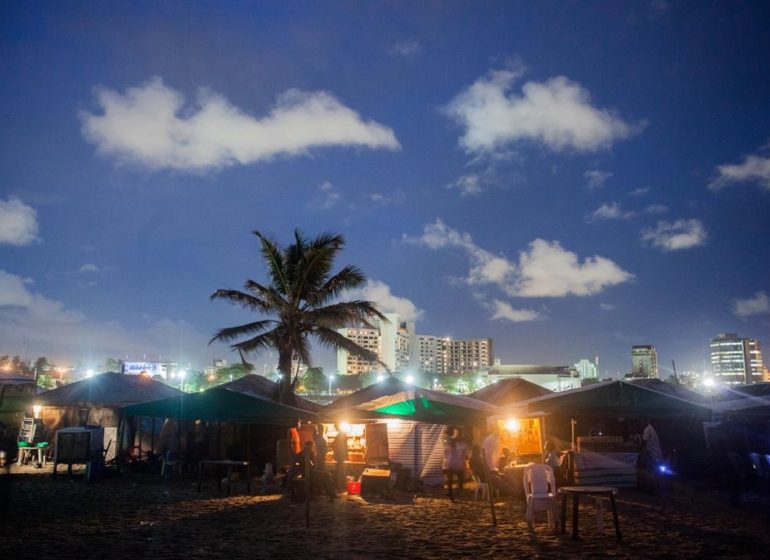Something happened in Lagos nightlife during the past decade that many, in the rush of their everyday existence, have seemingly forgotten. A unique way of life for a generation that went through the battering of the 90s, suffering from the lack of basic amenities and recovering from the brink of war and crises around the country due to the annulment of a national election held on 12 June 1993.
The uncertainty of life in Nigeria in that period was real, this was the era of masses sleeping right in front of all Western embassies to get their visa appointments. “Checking out” of Nigeria, whichever way, was the main thing on the mind of many Nigerians and it still is.
Back then, nightlife in Lagos started and ended on the mainland: Ikeja, Idi Oro, Surulere, Agege and many other parts of the expanding city were all its ultimate partying spots. At this time, the craze for Lagos Island was not a thing at all.
By the mid-1990s, the huge beeline for the East of Lagos started. Ajah, Osapa London, Badore, Lekki and many other areas crept into our consciousness. Like a swarm of locusts, people moved from all nooks and crannies of Lagos and beyond, heading towards Eti-Osa and Ibeju Lekki Local Government Areas. Ikoyi and Victoria Island, the commercial nerve of the country, hosted the super-rich and government workers in parts of its huge but almost empty rainforests with shifty white sands.
To the East of the famous Bar beach at Victoria Island is a little sandy beach, South of the Kuramo Waters lagoon called Kuramo beach. The story of Kuramo beach has not really been told, in fact, it has been consumed and wiped off the memory of many as they go about life.
Kuramo beach had a life of its own at night during the last decade of the 20th century, in spite of the frequent ocean surges that ate miles off Bar Beach and eventually decimated the coastline within a decade. It was a real sin city for many young and some older Nigerians. It was the location of numerous illegal shanties and cabins, some of them used for music entertainment, bars and prostitution.

Kuramo Beach was the place where one could come across some of the freest human beings. The sex, drugs and entertainment culture of Kuramo is something yet to be seen on such a level anywhere else in Nigeria. “Come make we go fuck” was something you would hear, with a woman or two aiming for your groin. The shanties all backing the Kuramo waters had little rooms for ‘short time’ sexual encounters. Lewdness was not something frowned upon in Kuramo. The women of Kuramo Beach appeared in all shapes, complexions and grades. The men were the top hustlers, guys on the go from the parking area to the tent where costumers could get any alcohol or drug of their choice.
Another remarkable thing about Kuramo is how long lost friends would suddenly appear out of the dark, with a bottle of Squadron Dark Rum in their hands (nobody talks about Squadi anymore).
Kuramo Beach was the place to get beer at pump price, eat suya, nkwobi, grilled fish or pepper soup before bouncing into the highbrow night clubs to nurse one overpriced beverage for the rest of the night. You would find the highs, lows and everything in between of Lagos society and beyond at Kuramo beach.
White garment church people praying their troubles away, casting and binding into the ocean were abound. It was not uncommon to see a rasta woli (prayer warrior) screaming on top of his lungs into the salty foamy sea and people having sex just a few meters away. There was respect and everyone went about their businesses diligently.



The Fall
It was a gradual process, starting with eviction notices from the Lagos State government to the inhabitants and business vendors, also linked to the Eko Atlantic project, an audacious land reclamation from the ocean taking the shores of the Lagos Bar beach to where it had been in 1900.
The people in Kuramo never really moved as the revenue being generated was too tempting to leave without a fight, and it eventually became a race against time.
A long-awaited opportunity came for the Lagos State government when a huge ocean surge slapped into Kuramo in the middle of the night in August 2012, destroying many of the shacks and killing sixteen people, sweeping some of them off into the ocean never to be seen again.
That night, Lagos lost that interesting glitter by the ocean. The government came in quickly, flattened the place up, washing away the dreams of many beer vendors, destitutes, area boys and girls including many Lagos Island nightcrawlers.
Copyright 2025 TheCable. All rights reserved. This material, and other digital content on this website, may not be reproduced, published, broadcast, rewritten or redistributed in whole or in part without prior express written permission from TheCable.
Follow us on twitter @Thecablestyle

